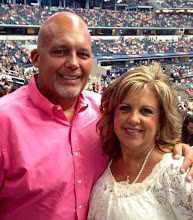There’s something happening here. What it is ain’t exactly clear.
For the bulk of my teaching career I have challenged my students to consider their
fit with their current organization or a potential new employer. It’s an important consideration.
My understanding of fit has evolved over the years. My initial framework for fit had two primary dimensions. The first dimension has to do with having the skills that match the requirements for the job. For example, having a degree in accounting is necessary for a financial analyst position.
The second level of fit has to do with the rewards of the job satisfying the employee’s needs. This actually has two parts. First the tangible rewards that the job provides must meet the tangible needs of the employee. Tangible needs and rewards include salary and benefits. But, there is more. There are intangible needs that must be met by the job. For instance, I have a need for variety. Just the thought of doing the same task repeatedly drives me crazy. I also like my autonomy – setting my own pace and having the freedom to approach my work from my own unique perspective. So, when evaluating a job, these intangible factors are as important to me as the tangibles.
For many years, this is where my understanding of fit stopped. Then, we sold our company and a new management team took over. They had a completely different approach to business and treated people in a way that would never have been accepted by our previous leadership team. In fact, I came up with a name for this new group. I called them the
BOHICANS. That’s based on the acronym for
Bend Over, Here it Comes Again!I worked for the Bohicans for a while, but became increasingly uncomfortable. In fact, the stress level of working there got to the point that I would begin getting nauseated on Sunday afternoons anticipating having to go back to work on Monday. It was kind of weird. I was making more money than I ever had. I had a lucrative quarterly bonus that I always received. Yet something was missing.
I began to wonder whether I fit in this new organization. As I examined this, I discovered a third dimension to the fit model. I realized that my values didn’t line up with the values of the organization. It wasn’t a good vs bad judgment; rather, it was just that I didn’t fit. My philosophy of business and my beliefs about how people should be treated just weren’t in line with the Bohicans.
This lack of fit became a catalyst for a major change in my life. In fact, this poor fit became the impetus for me to leave the corporate environment and return to school to pursue my Ph.D. and transition into a new career of university teaching and consulting. A huge decision that has paid off beyond our wildest imagination!
For the last 15 years, my discussion of fit has stopped at this third level. Yet some recent experiences have again caused me to revisit the fit model. I found myself in an organization where everything seemed to fit, yet something seemed to be missing. Reflecting on this had led to yet another evolution of my fit equation. This one has to do with the “personality” of the organization.
We usually think of individuals having personalities and a useful framework for doing this is a two-dimensional model that has level of activity on one axis and affect on the other. The activity axis ranges from passive to active. The affect axis ranges from negative to positive. If affect is a new term for you consider this: We all know people who have what we would call “Yes-faces” – that’s positive affect. Negative affect is the technical term for people with “No-faces.” (And right now some of each of these people popped into your mind!)
So, we have four possible personality combinations: Active-Positive, Active-Negative, Passive-Positive, and Passive-Negative.
I would suggest that we could use the same framework to describe an organization. And thus we now have a new dimension of fit that needs to be considered: Positive people don’t fit in negative, cynical organizations. And people who are active, get very frustrated in organizations that move slowly. While a crazy, rapid pace can be chaotic, when the pace is too slow, active people become frustrated. It’s kind of like driving behind someone who is driving below the posted speed limit. Even if you’re headed in the same direction, you keep running into them from behind.
Do you fit in your current organization?

